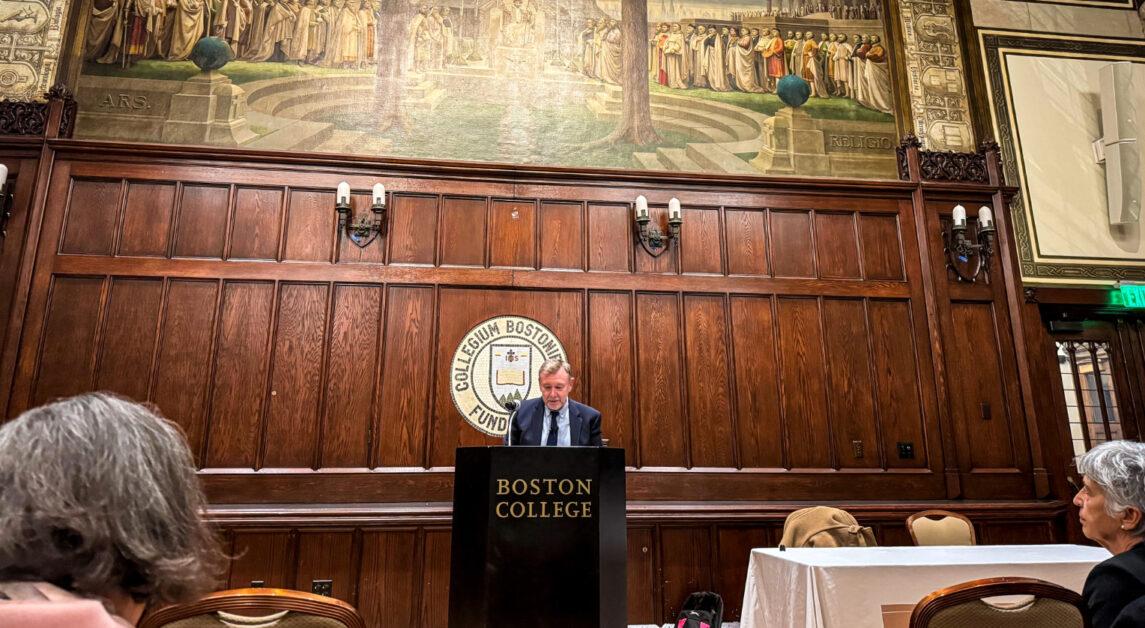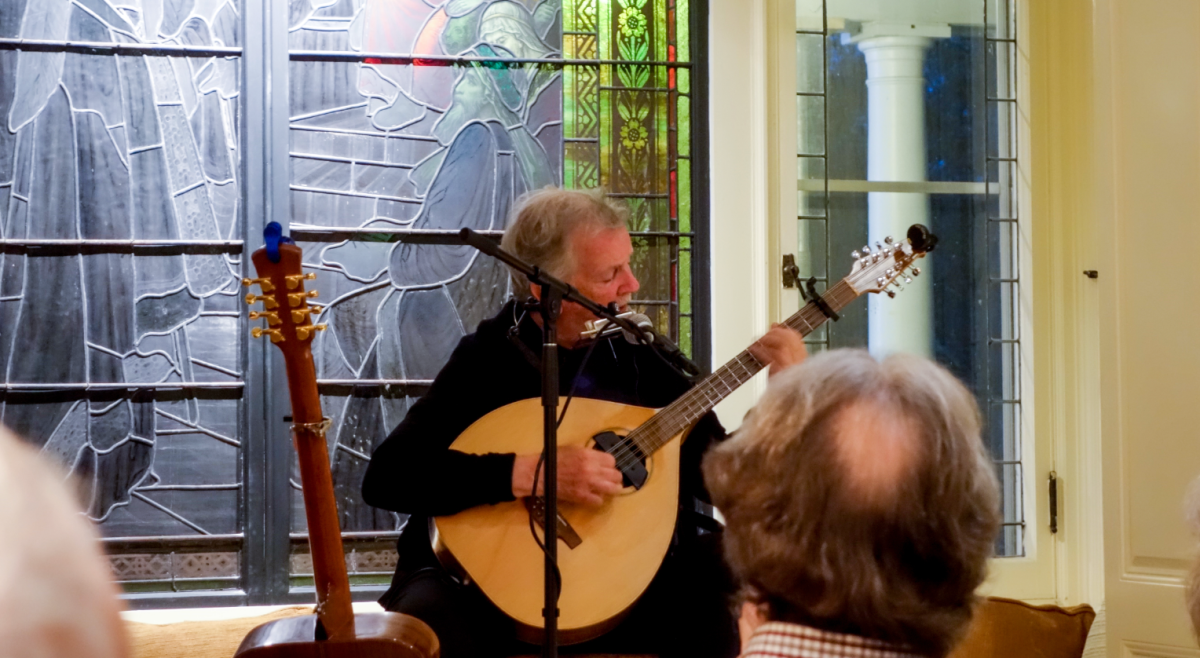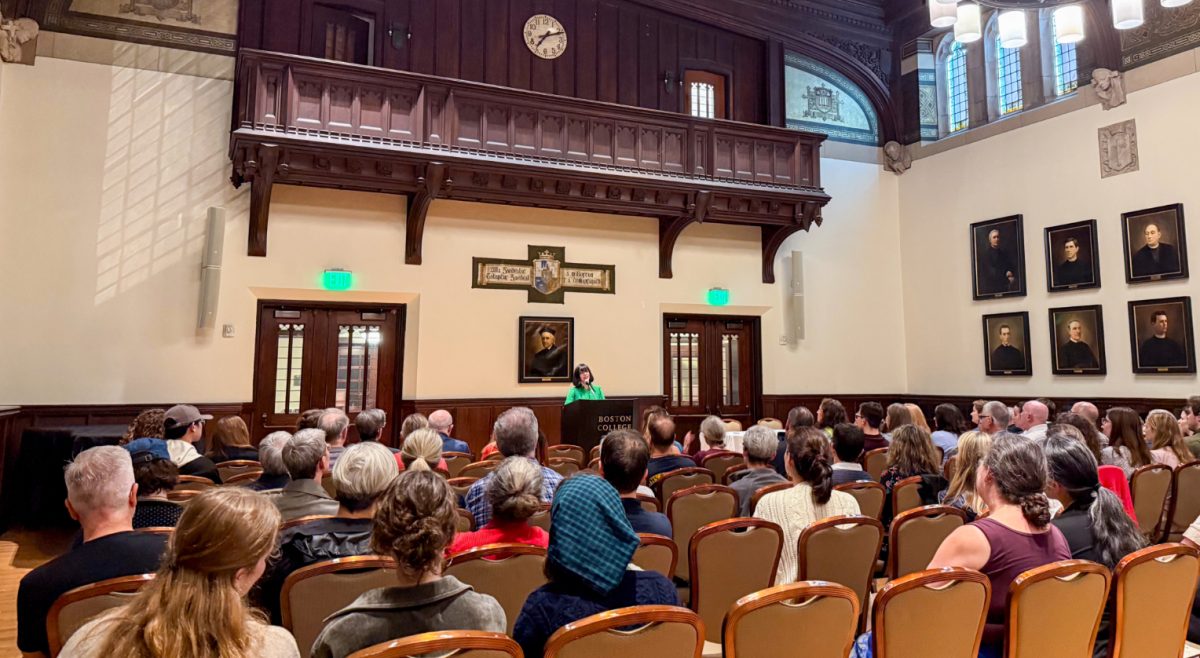In a magisterial lecture Wednesday night, Graham Ward, Oxford University’s Regius Professor of Divinity, offered a sophisticated theological examination of contemporary loneliness, situating this pastoral phenomenon within broader questions of divine calling, spiritual formation, and theological anthropology.
Ward, whose systematic theology book series Ethical Life has garnered significant attention in theological circles, constructed a complex theoretical framework connecting Isaiah’s divine interpellation—”I have called you by name; you are mine”—with contemporary manifestations of spiritual alienation.
Speaking as part of the Lowell Humanities Series, Ward articulated a theological hermeneutic that positions loneliness not merely as a sociological phenomenon but as a profound indicator of humanity’s ontological condition.
“No experience of loneliness is the same,” said Ward.
The distinguished theologian, drawing upon Kierkegaardian concepts of innerness and despair, proposed that the contemporary experience of loneliness exists at the intersection of secularization and the dissolution of traditional theological frameworks.
His analysis suggested that the absence of theological grounding for understanding states of alienation has particular salience in our secular age, where experiences of isolation lack the interpretive framework historically provided by religious tradition.
Ward’s exegesis was particularly illuminating in its treatment of interpolation—both negative and positive—in the context of divine calling. He delineated how responding to divine address entails being drawn into what he termed “the gravity of an engagement,” suggesting that authentic theological anthropology must grapple with the mystery of being both known and called by the divine while simultaneously engaging in the process of self-discovery.
The lecture took an unexpected turn into contemplative theology as Ward explored the relationship between solitude and spiritual formation by drawing from the biblical narrative of Jacob’s isolated wrestling with divine presence.
“Our being alone is an existential corollary of our being created,” said Ward.
This theological insight was carefully balanced with contemporary pastoral concerns, as Ward acknowledged the potentially devastating impact of chronic loneliness while maintaining that solitude remains essential for spiritual development.
Central to Ward’s theological framework was his analysis of desire’s role in spiritual formation. He proposed that desire itself establishes relationality even when its object serves merely as a placeholder, suggesting that this dynamic mirrors the human-divine relationship.
This concept was skillfully connected to the Johannine account of the arrest in Gethsemane, where Ward interpreted the question “Whom do you seek?” as a profound exploration of desire’s role in human-divine encounters.
Ward concluded by proposing that loneliness represents not merely an emotional state but “a certain poverty” that speaks to fundamental questions of theological anthropology.
“Loneliness is a profound recognition of forsakenness,” said Ward.
His integration of monastic traditions with contemporary psychological insights offered a sophisticated framework for understanding modern isolation within the broader context of spiritual formation.
The presentation, cosponsored by the Boston College theology department, demonstrated Ward’s facility for bridging systematic theology with contemporary pastoral concerns, offering valuable insights for theological anthropology in an age of increasing secular isolation.
Through this nuanced exploration, Ward illustrated the continuing relevance of theological frameworks for understanding contemporary human experience, while maintaining scholarly rigor in his analysis of modernity’s spiritual challenges.













